Biracial Identity | Seeking to Be Unconditioned
Already at nine years of age, we sensed that perceptions weren’t truths. We knew that fear-generated anxiety narrowed choices and exacerbated hate. We saw that racism had no color of origin and wondered at life’s purpose, when love for your fellow man seemed conditional rather than unconditioned.
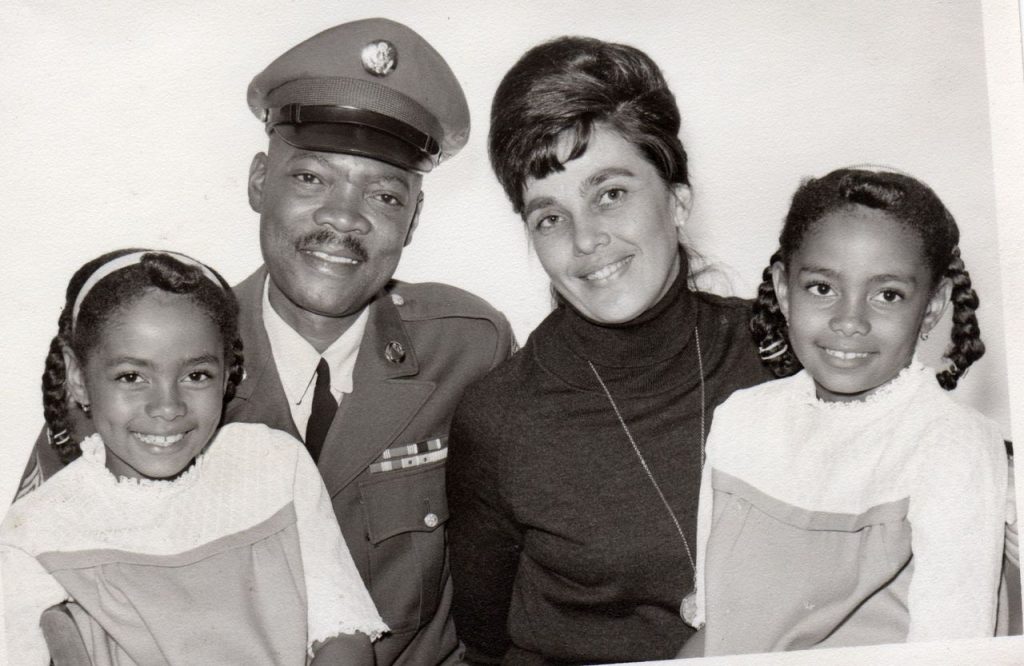 We were army brats in the late fifties and, after a stateside birth, spent the next six years on a base in Frankfurt, Germany. As an African-American soldier, our father was originally stationed at the US Army garrison in Mannheim, an industrial city along the Neckar River. That’s where he met and later married our German-born mother.
We were army brats in the late fifties and, after a stateside birth, spent the next six years on a base in Frankfurt, Germany. As an African-American soldier, our father was originally stationed at the US Army garrison in Mannheim, an industrial city along the Neckar River. That’s where he met and later married our German-born mother.
Their union was struggle-filled, aggravated by cultural, social, and economic legacies prevalent in both countries that fostered racism and gender inequality on the one hand, and strong bonds of devotion and loyalty on the other.
Essentially, we grew up socially isolated because we weren’t black or white, and culturally isolated, precisely because we were both. When we returned stateside as second-graders, we childishly determined not to claim any specific ethnic identity, to walk the middle line amidst an American population in deep crisis over how to engage with a burgeoning mixed-race population of children.
School-days were frankly hazardous and encompassed years of enforced engagements and rejections. Classmates were rarely kind and mostly of the ‘noble’ variety—those that ‘taught’ us what different meant. Being bi-racial offered up daily opportunities to reflect on our otherness and viscerally experience the unreliability and superficiality of perception, even our own. Why was it important to choose an identity? Wasn’t being human enough? And, being human, how could we get beyond the bias and see clearly? Was identity connected to purpose? At nine years old, these were questions we desperately wanted answered.
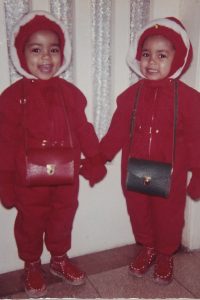 By becoming watchers and listeners at an early age, our need to self-protect jump-started the search for the truth of this human experience. We recognized early that thoughts influence emotions, which in turn motivate action. In the intervening years, we were guided toward wisdom teachings, personal transcendental experiences, and, finally, a spiritual tradition that required dedication and active partnership to engage the benefits hidden within the labyrinth of life.
By becoming watchers and listeners at an early age, our need to self-protect jump-started the search for the truth of this human experience. We recognized early that thoughts influence emotions, which in turn motivate action. In the intervening years, we were guided toward wisdom teachings, personal transcendental experiences, and, finally, a spiritual tradition that required dedication and active partnership to engage the benefits hidden within the labyrinth of life.
Now we know that the labyrinth of life is unicursal, so getting lost, like being alone, has no basis in reality. Each biofield is connected somewhere in a quantum reality waiting to manifest perception into experience. So, we’re exactly where we directed ourselves to be at this point in life, in a maze that’s unique to each of us. But unlike an ordinary maze that has physical branching pathways, our labyrinths evolve as we walk—no turn-offs, just curated choices, like quantum probability branches waiting to be weighted as we choose to experience life’s lessons.
The questions we posed at nine years of age were answered around thirty. Parmahansa Yogananda, world teacher and author of Autobiography of a Yogi, told a truth-seeker, “Though the drama of life is governed by a cosmic plan, man may change his part by changing his center of consciousness.” As a species, we could, he professed, “level up”: that is, shift consciousness to a broader awareness to access a cloud of experiences leading more swiftly to the center. What lives at the center of human experience? Freedom. Freedom of the self from ego attachments.
With a wall all around
A clay bowl is molded;
But the use of the bowl
Will depend on the part
Of the bowl that is void …
So, advantage is had
From whatever is there;
But usefulness rises
From whatever is not.
— Lao Tzu
excerpt from Blakney’s 1955 translation
The Way of Life, Tao Te Ching
Lao Tzu’s wall provides structure for the makings of a bowl, as the body-mind offers scaffolding for the drama of life to play out. However, to attain the “usefulness” that Lao Tzu claims arises “from whatever is not,” we need to affect our own prison break by recognizing opportunities to evolve.
We’re not alone with our struggle. Rare moments of connection-by-light and the peacefulness of unencumbered joy experienced during meditation provide a sporadic love note as a boost to continue the hard work of consciousness growth.
Over the years, we watched people struggle after being confronted with their own biases. It’s natural to resist change. But perceiving that change as a big step towards detachment makes it easier somehow to persevere and not succumb to temptations by taking-a-lateral. Laterals arise out of a lack of devotion to the evolution of self and a limited awareness of the primacy of loyalty to that journey.
Strengthening devotion involves a parallel journey of 1) authentic acceptance of life’s context and content, 2) an increasing ability to adapt to change in the present moment, and 3) an unwavering willingness to expend effort to evolve personally. Trust and allegiance become paramount in an effort to transform a self-oriented sense of loyalty into one that claims all of Life as family. These ways of being may seem fairly clear-cut and reasonable, but we’ve found they are really dense and difficult to execute. Without loyalty, self-awareness remains limited; a sense of the Sacred is blurry. And detachment? Impossible. But loyalty is built upon the broad shoulders of a devotion fortified by an evolving understanding of fidelity and love. There is no cleansing of the body-mind of attachments, perceptions, and dependencies without an expanded acceptance of love and union. What is union but the awareness of Self merged with the greater cosmic awareness that is all creation?
What lives at the center of our human experience? The final freedom. Freedom to choose who you want to be in relationship with every other being. Freedom to know that your path is your own. Freedom to engage with the labyrinth and co-create your future. Freedom to be unconditioned.


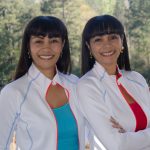
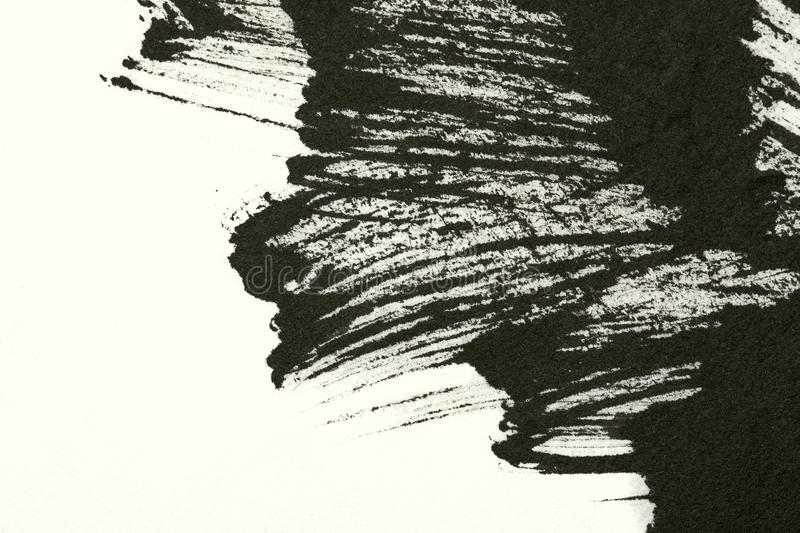
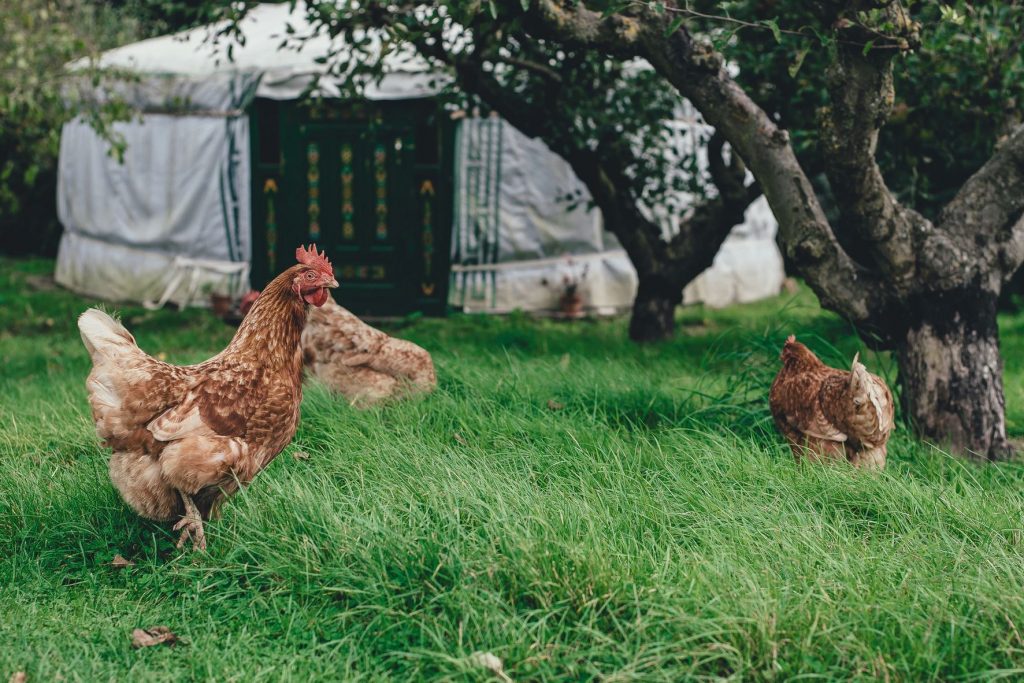

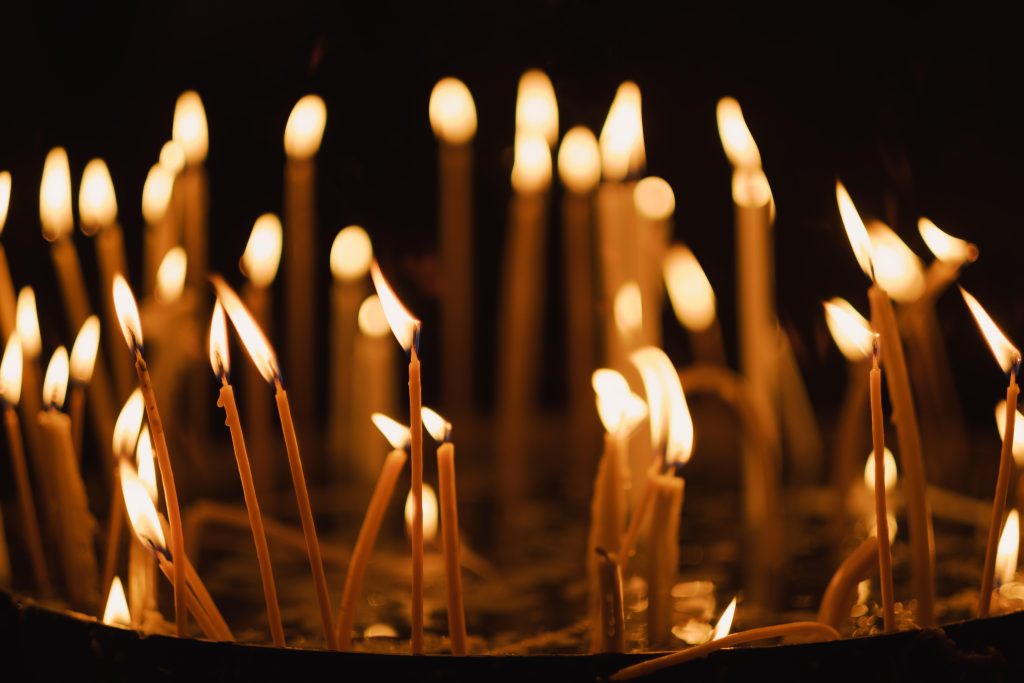
Enjoyed so much the essay “Biracial Identity: Seeking to Be Unconditioned” by Renee Rolle-Whatley and Ramona Rolle-Berg. Being a white woman in her eighties, this helped me to understand the awful anguish, hurt, and isolation these sweet biracial babies had to endure during their childhood and any person of color. The wonderful thing is that these ladies have grown up to be so insightful and know that we are all connected no matter what our color, philosophy or religion. Yes, we are living in a loving Universe.. Would love to hear more from these two ladies. Thank you.
This thought provoking essay is so multi-leveled and offers discussion opportunities about racial issues, consciousness, spiritual and developmental life paths, bio-fields, and the convergence of ideas of ancient visionaries, yogis, philosophers and scientists. I do appreciate their moral courage and admire their spiritual path of discipline and devotion. They truly “leveled up”.
In these strange times, I initially embraced the change with the thought that it provides me time to really reflect on what’s important to me and cherish those things. As time has gone on, that’s become more difficult, and I find myself hibernating and losing the idea of cherishing this as a time for growth. So human. When I read this article, I was reminded of the time in 1999 when I truly began a spiritual journey and desire to evolve. The article reminded me of what started for me in 1999. My journey began from an unbearable challenge and has continued over these years with stops and starts. Reading this story of two lives’ journeys gives me the inspiration to always keep striving to deepen my consciousness, especially in difficult times. This was a most timely article for me and is greatly appreciated.